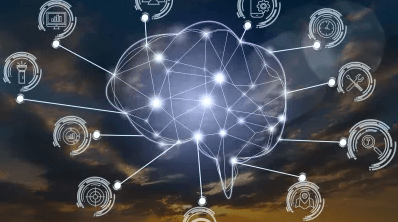Lawmakers Resilience Iotlomastechcrunch

In an increasingly interconnected world, where the Internet of Things (IoT) permeates various aspects of our daily lives, the need for robust cybersecurity laws and regulations has become paramount.
With the potential vulnerabilities and risks associated with IoT devices, lawmakers are facing the challenge of creating resilient frameworks to protect individuals and society as a whole. How can lawmakers ensure that our personal information remains secure while still allowing for innovation and technological advancements?
One crucial aspect that policymakers must address is enacting cybersecurity laws that effectively safeguard against cyber threats. As IoT devices continue to proliferate, they create new entry points for hackers to exploit vulnerabilities in networks and systems.
Therefore, it is imperative for lawmakers to establish legal frameworks that require manufacturers to implement strong security measures in their products. By mandating stringent security protocols such as encryption standards, authentication mechanisms, and regular software updates, lawmakers can enhance the resilience of IoT devices against cyber attacks.
Addressing privacy concerns is another key consideration for policymakers when regulating IoT technologies. As these devices collect vast amounts of data about individuals’ behaviors and preferences, there arises a pressing need to protect individuals’ privacy rights.
Lawmakers must strike a balance between allowing companies to utilize this data for innovation purposes while ensuring proper consent mechanisms are in place and providing individuals with control over their personal information.
By implementing comprehensive privacy regulations that outline clear guidelines on data collection, usage, storage, and sharing practices within the IoT ecosystem, lawmakers can foster trust among users while addressing their subconscious desire for freedom in an increasingly connected world.
Enacting Cybersecurity Laws
Enacting cybersecurity laws involves the implementation of comprehensive regulatory frameworks that establish legal requirements and standards for ensuring the protection of digital infrastructure from cyber threats. These laws aim to enhance cybersecurity awareness and promote international collaboration in addressing cyber threats.
By creating a legal framework, lawmakers seek to raise awareness among individuals, organizations, and governments about the importance of cybersecurity and the potential risks associated with cyber attacks. This includes educating users on best practices for protecting their digital assets and encouraging them to adopt secure technologies.
Additionally, enacting cybersecurity laws fosters international collaboration by promoting information sharing between countries, enabling a coordinated response to global cyber threats. Through these efforts, lawmakers strive to create a secure digital environment that supports innovation while safeguarding individual privacy and freedom online.
Addressing Privacy Concerns
Addressing privacy concerns in the realm of technology and data collection has become a pressing issue that demands careful examination and proactive measures.
With the rapid advancement of technology, the collection and utilization of personal data have grown exponentially, raising concerns about how this information is being protected and used.
Data protection has become crucial as individuals increasingly rely on digital platforms for various activities, such as online banking, social media interactions, and e-commerce transactions.
Ensuring user consent is a key aspect of addressing privacy concerns. It is essential to establish clear policies regarding the collection, storage, and sharing of personal data while providing individuals with transparency and control over their information.
Striking a balance between enabling innovation and protecting individual privacy rights requires lawmakers to enact robust legislation that safeguards personal data while promoting technological advancements.
See also Kyocera 9.78b March March Marchnitta Nikkeiasia
By implementing comprehensive cybersecurity laws that address these privacy concerns, governments can protect citizens’ rights while fostering an environment conducive to technological progress.
Drafting Comprehensive Frameworks for IoT Regulation
Developing comprehensive frameworks for IoT regulation requires careful consideration of the potential risks and challenges associated with the proliferation of interconnected devices in our increasingly digital world.
One key aspect that needs to be addressed is IoT certification, which ensures that devices meet certain security and privacy standards before they are deployed. This certification process should involve rigorous testing and evaluation to verify that the devices have implemented appropriate security measures to protect against cyber threats.
Additionally, data governance plays a crucial role in IoT regulation as it involves managing the collection, storage, and use of data generated by these devices. A robust framework should outline clear guidelines on how data should be handled to ensure privacy protection and prevent misuse or unauthorized access.
It is essential for lawmakers to strike a balance between promoting innovation and safeguarding individuals’ rights and freedoms when drafting comprehensive frameworks for IoT regulation.
Frequently Asked Questions
How can lawmakers ensure that the cybersecurity laws they enact are effective in protecting against IoT-related threats?
To ensure the effectiveness of cybersecurity laws against IoT-related threats, lawmakers should collaborate with industry experts to establish robust industry standards. This collaborative approach will enable the development and implementation of comprehensive regulations that address emerging challenges in protecting IoT devices from cyber threats.
What steps are being taken to address the privacy concerns associated with IoT devices and technologies?
To address privacy concerns and ensure data security in IoT devices, various measures are being taken. These include implementing robust encryption protocols, adopting privacy-by-design principles, enforcing strict data protection regulations, and promoting transparency regarding data collection and usage.
Are there any specific guidelines or regulations in place for drafting comprehensive frameworks for IoT regulation?
Specific guidelines and regulations are necessary for drafting comprehensive frameworks for IoT regulation. These guidelines should address the various aspects of IoT, including privacy concerns, security measures, data protection, and interoperability standards to ensure a robust and trustworthy IoT ecosystem.
What are the potential challenges faced by lawmakers in enacting cybersecurity laws for IoT devices?
Challenges faced by lawmakers in enacting cybersecurity laws for IoT devices include the complexity of regulating a rapidly evolving technology, balancing security with innovation, addressing privacy concerns, and ensuring global harmonization of regulations.
How are lawmakers working with industry experts and stakeholders to develop effective regulations for the IoT sector?
Government collaboration with industry experts and stakeholders is crucial in developing effective regulations for the IoT sector. This collaboration ensures that industry standards are incorporated, leading to a more comprehensive and balanced approach to cybersecurity laws for IoT devices.
Conclusion
In conclusion, lawmakers have demonstrated remarkable resilience in addressing the growing concerns surrounding cybersecurity and privacy in the IoT landscape. By enacting robust cybersecurity laws, they have taken a significant step towards safeguarding sensitive data and protecting individuals from potential cyber threats. This proactive approach highlights their commitment to ensuring a secure digital environment for all.
Furthermore, the legislators’ efforts in addressing privacy concerns cannot be overstated. Through stringent regulations and guidelines, they have created a framework that promotes transparency and accountability among IoT stakeholders. This comprehensive approach not only protects users’ personal information but also fosters trust between consumers and technology providers.
Overall, the lawmakers’ unwavering dedication to drafting comprehensive frameworks for IoT regulation has been commendable. Their tireless efforts serve as a testament to their commitment to upholding security standards and protecting individuals from emerging cyber risks. With their continued vigilance, we can expect a future where IoT technology flourishes while maintaining utmost security and privacy measures.




